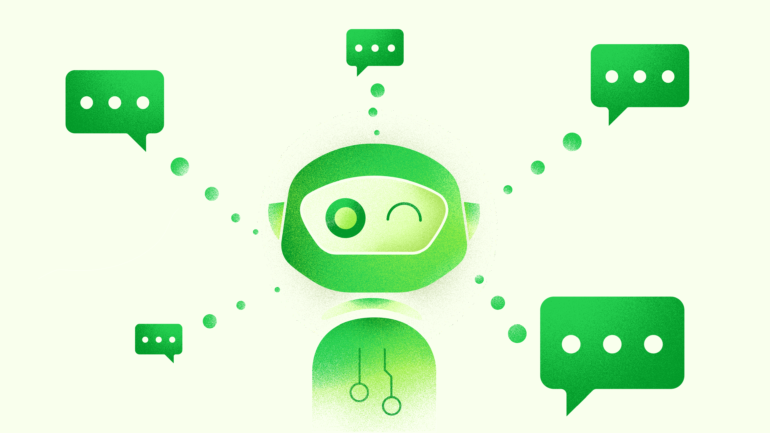TL;DR:
- LLMs lack empathy and human understanding due to their predictive nature.
- Calls for fine-tuning and impact evaluation to prevent potential harm.
- There is an urgent need for a coordinated academic-industry initiative similar to the Human Genome Project.
- LLMs should undergo impact evaluation to ensure their advice benefits individuals.
- Addressing bias and ensuring representation is vital for equitable LLM development.
- Keystone datasets and standardized benchmarks will advance psychologically capable LLMs.
- Shared infrastructure and collaboration are essential to fast-track LLM readiness.
Main AI News:
In the world of AI, large language models (LLMs) have taken center stage, promising solutions to a wide array of applications, from sales and marketing to healthcare and psychotherapy. However, as Dora Demszky, assistant professor in education data science at Stanford Graduate School of Education, points out, the fundamental nature of LLMs presents a significant challenge. These models, while capable of generating grammatically correct text, lack a critical component: empathy and human understanding.
Diyi Yang, assistant professor of computer science at Stanford, echoes these concerns, emphasizing that without proper fine-tuning and impact assessment, LLMs may inadvertently cause harm or offer little benefit to society despite consuming substantial resources and attention. Their shared perspective, featured in a recent edition of Nature Reviews Psychology, calls for a strategic approach to address these issues.
The Need for a Coordinated Effort
To harness the potential of LLMs, the trio of Demszky, Yang, and David Yeager, professor of psychology at the University of Texas, Austin, envisions a grand initiative akin to the Human Genome Project. Such an endeavor would bring together academia and industry to advance the field of LLMs. The key objectives: fine-tuning and impact testing on diverse populations at scale. Given the pressing mental health challenges we face and the rapid proliferation of LLM applications, action is imperative.
Yeager warns of a potential future where creators of generative AI systems could be held liable for causing psychological harm due to inadequate evaluation of these systems’ impact on human thinking and behavior. This caution underscores the urgency of the situation.
The LLM Challenge
Unlike human communication, where we interpret signals, anticipate needs, and consider the listener’s perspective, LLMs operate purely on predictive text generation. They lack a “theory of mind” – the ability to understand and respond to others’ mental states, which is crucial in psychology and counseling.
For instance, when an anxious college applicant seeks advice on managing stress from a chatbot like ChatGPT, the responses may seem plausible but lack the depth of understanding provided by a professional psychologist or a compassionate friend. Often, LLMs merely parrot common but ultimately unhelpful advice, according to Demszky.
Fine-Tuning and Impact Evaluation
LLMs undergo pre-training on vast internet data and are primarily evaluated for grammatical correctness. To enhance their usefulness, researchers and companies fine-tune them using expert-annotated datasets focused on psychological constructs. However, as Yeager emphasizes, clinical psychologists often disagree on the best advice, which necessitates further evaluation.
Demszky and colleagues advocate for impact evaluations, conducting large-scale experiments to determine whether LLMs’ advice truly benefits individuals, such as reducing anxiety and improving learning outcomes. These evaluations, though challenging and time-consuming, are essential for ethical and effective LLM development.
An Example of Success
Yeager’s team recently demonstrated the power of impact evaluation by using LLMs to generate speeches for students with math anxiety. Initial attempts produced speech that resembled a teacher’s words but failed to alleviate anxiety. After fine-tuning the LLM with expert-written speeches, the unique versions generated by the LLM achieved 80% of the benefit observed with expert-written speeches. This example underscores the potential of expert annotation and impact evaluation to bring about societal benefits.
Addressing Bias and Ensuring Representation
Alongside these efforts, it’s crucial to prevent bias in LLMs. Yeager stresses the importance of inclusion and representation in data annotation and impact evaluations to ensure that the tools developed are equitable and effective for diverse populations.
Keystone Datasets and Benchmarks
To develop psychologically capable LLMs, the researchers advocate for keystone datasets tailored to specific domains, such as clinical psychology and education. These datasets would help fine-tune models for specific applications and could consist of language associated with improving mental health, enhancing learning, or promoting workplace motivation, among other objectives.
Furthermore, standardized benchmarks would enable the evaluation of LLMs’ performance in various domains, ensuring progress and reliability in psychological research.
A Call to Action
While acknowledging the challenges and costs involved, Demszky, Yang, and Yeager emphasize the urgency of investing in a shared infrastructure for LLM development. They argue that such an infrastructure would lead to more reproducible research, greater societal benefits, and increased equity.
Yeager concludes by stressing the need for interdisciplinary scientific teams to lead these major initiatives, as private companies are unlikely to take on this responsibility on their own. Only through a collaborative effort can we ensure that LLMs are ready to positively influence human behavior while minimizing potential harm.
Conclusion:
The AI market needs to prioritize fine-tuning and ethical evaluation of large language models (LLMs) to avoid causing harm and maximize their potential for societal benefit. A collaborative, interdisciplinary effort, akin to the Human Genome Project, is urgently required to make LLMs ready for responsible and effective use in various domains, including psychology and education. This approach will lead to more equitable and reliable AI solutions and drive positive change in the market.

